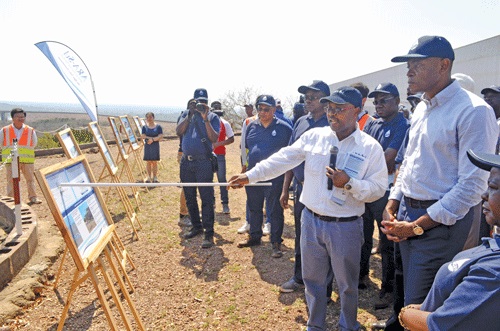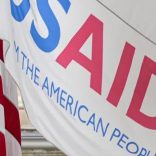Mozambique: N6 sees heavy traffic in Manica
Works on Corumana dam will nearly double Maputo water supply

Photo: Notícias
The completion of construction work on the Corumana Dam in southern Mozambique will increase its storage capacity from 720 million cubic meters to 1.24 billion cubic meters by December of next year.
Mozambique’s Minister of Public Works, Housing and Water Resources, João Machatine, said that completion of the works would increase irrigated agriculture in the Incómati River valley from 25,000 to 36,000 thousand hectares, increasing food production in the region.
Water supply in the Greater Maputo region will also be strengthened, and no longer depend solely on the Pequenos Libombos Dam.
Work in progress also includes a 16.2 megawatt power production unit involving
a sluice gate, dam protection infrastructure and houses for the 132 families being resettled as a result of the project.
The works, funded by the World Bank and expected to last 15 months, is budgeted at US$25 million, and will rehabilitate the dam body and control centre and install a security monitoring system.
Minister Machatine said that the containment of the saltwater intrusion in the Incomati river estuary and the increased electricity generation reliability were among other gains foreseen.
Construction of the Corumana Dam started in 1983 and limited operations in 1990, but the civil war and funding limitations meant that the work was not completed. The floodgates now being built will give the dam the capacity initially intended.
The government has been negotiating the completion of the work with various partners for several years and with increasing urgency as the growth in demand for drinking water in Greater Maputo began to stretch the capacity of the smaller Libombos facility.
The new drinking water supply project for Greater Maputo includes the installation of a 95-kilometre water main to Machava in Matola municipality.
Moambad district administrator, Guilhermina Kumaguelo, said that complementary works would alleviate the current shortage of water for human consumption, irrigation and watering of livestock, while World Bank Director for Mozambique Mark Lundell noted that Corumana was part of a clutch of water and sanitation projects in Mozambique valued at US $600 million.












Leave a Reply
Be the First to Comment!
You must be logged in to post a comment.
You must be logged in to post a comment.